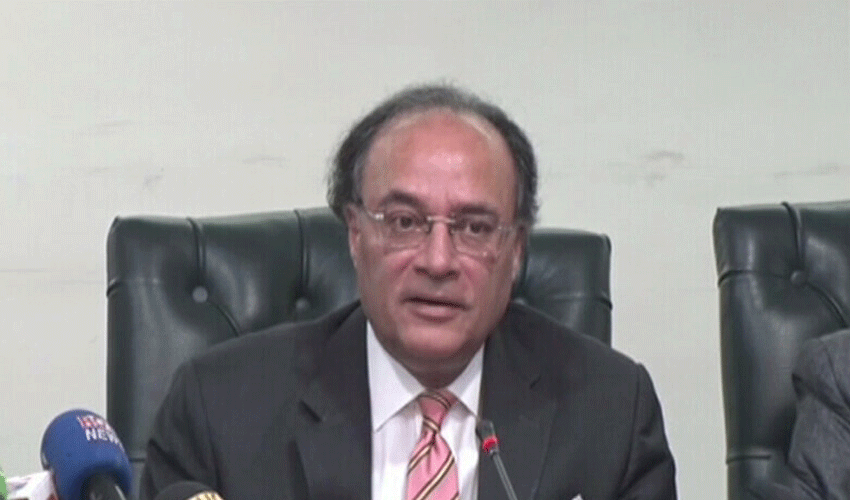Finance Minister Muhammad Aurangzeb urged the business community to stop offering bribes and vowed to appoint credible officers within the Federal Board of Revenue (FBR).
Addressing a press conference at the Lahore Chamber of Commerce on Saturday, the finance czar emphasised that the industrial and trade sectors play a crucial role in Pakistan's development.
Aurangzeb highlighted that the government’s primary focus is to benefit the common man, stressing that achieving self-sustainability would mark the end of Pakistan’s reliance on International Monetary Fund (IMF) loans.
“If we address issues related to revenue generation and energy, the economy will see significant improvement,” he said.
He further noted that Prime Minister Shehbaz Sharif is personally overseeing taxation matters, underscoring the government's commitment to reforming the fiscal system.
However, the Finance Minister also called on the business community to play their part in tackling corruption, acknowledging that both government officials and businessmen are involved in bribery.
“The business community must help us by stopping the practice of giving bribes. We will ensure that only reputable officers are appointed within the FBR,” Aurangzeb added.
Reforms for salary class
The Finance Minister acknowledged the tax burdens faced by the salary class, which contributes 80% of income tax revenue, yet often finds itself tangled in bureaucratic processes. He proposed a simplified tax filing process, stating that a new online form would be introduced, allowing tax filers to resolve their issues through a mobile phone without visiting government offices. “We aim to make the tax process easier and more transparent for the salaried class,” he said.
Discussing the losses incurred by State-Owned Enterprises (SOEs), Aurangzeb revealed that these entities collectively incur losses of up to one trillion rupees annually. He stated that 24 SOEs would be privatized as part of efforts to curb inefficiency and redirect savings to critical sectors like health and education.
“Once money is saved from these losses, it will be allocated to vital services, improving public welfare,” he remarked.
The FinMin also touched upon the need for technological integration in Pakistan’s customs operations. He emphasized that eliminating human intervention would be essential to improving the efficiency and transparency of the customs process. “Without technology and proper automation, the issues in customs will persist,” he added.
Aurangzeb also raised concerns about the rapid population growth and the environmental challenges that Pakistan is facing. He pointed out that while the birth rate in rural areas remains high, urban centers are witnessing a decline in population growth, a trend that could strain resources.
“If this trend continues, it will significantly impact the country’s future,” he warned. He also urged the public to support the Punjab Chief Minister’s climate change initiative, emphasizing that collective efforts are necessary to mitigate environmental problems.
Progress on PIA privatisation
The Finance Minister revealed that the government would soon resume the privatization process of Pakistan International Airlines (PIA), which has recently turned profitable after years of financial losses. He expressed optimism about the airline’s future, stating that its revitalization is a critical step towards improving Pakistan’s national assets.
On the economic front, Aurangzeb assured the business community that the government is committed to stabilizing the economy. He pointed to the reduction in inflation and the policy rate as positive signs of progress. “We are working to stabilize the business environment and support industrial growth. Our goal is to provide relief to the common man,” he said.
He concluded by stressing the importance of increasing the global market access for Pakistani products, which, according to him, is crucial for the country’s economic growth. The government is actively reviewing the challenges faced by industries, he added, promising that the feedback from business chambers would be taken into account in future policies.
Aurangzeb reiterated that if the country achieves self-sustainability, it would mark the end of the IMF’s involvement with Pakistan. “We are working towards a future where Pakistan no longer depends on external loans for its economic needs,” he said, offering hope for a more self-reliant economic future.
























